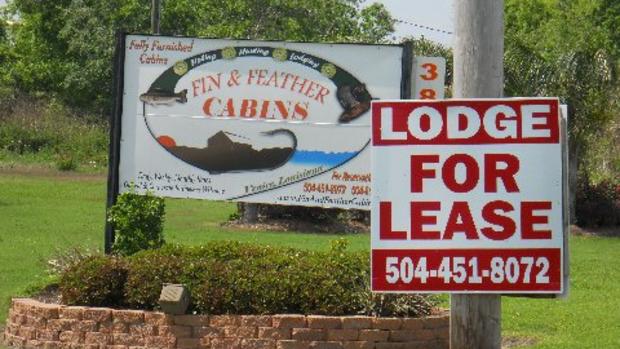BP challenges "fictitious" claims on oil spill
NEW ORLEANS BP PLC is being forced to pay inflated and even "fictitious" claims to businesses because of the way a court-appointed administrator is making payments from a legal settlement following the 2010 oil spill in the Gulf of Mexico, an attorney for the oil giant said Monday.
Ted Olson made the arguments in a packed courtroom before a three-judge panel of the 5th U.S. Circuit Court of Appeals. A lower court already refused to block payments to businesses that claim the spill cost them money.
At stake are billions of dollars in settlement payments stemming from the blowout of BP's Macondo well in the Gulf of Mexico. It was unclear when the appeals panel would rule.
Samuel Issacharoff, an attorney for Gulf Coast businesses and residents, argued the oil company was aware of the settlement terms and the administrator's methods. He questioned whether the appeals court has authority to change that agreement.
"There is no order of the lower court that is capable of being reviewed by this court," Issacharoff said.
Olson, who served as solicitor general under President George W. Bush, attacked the payout process.
"Irreparable injustices are taking place and money is being dispensed to parties from whom it may not be recoverable," he said in his opening remarks to the judges.
The panel opened Monday's hearing by asking Olson whether the court has jurisdiction in a case involving a settlement already approved by the parties in the case and a U.S. District Court judge.
Judge James Dennis seemed skeptical at times, asking at one point, "How can we go beyond the four corners of the agreement?"
BP has asserted that the judge who approved the deal and a court-appointed claims administrator have misinterpreted the settlement, allowing thousands of businesses to secure hundreds of millions of dollars in payments for inflated and fictitious losses.
Plaintiffs' attorneys who brokered the deal last year counter that BP undervalued the settlement and underestimated how many claimants would qualify for payments under the terms they negotiated.
BP's appeal doesn't apply to payouts to individuals.
- Three years after BP oil spill, active clean-up ends in three states
- Judge refuses to block BP settlement payouts
- Trial set to open for Gulf oil spill litigation
- Judge OKs $400M in Gulf oil spill penalties
The April 2010 blowout of BP's well off the Louisiana coast triggered an explosion that killed 11 workers on the Deepwater Horizon drilling rig and led to millions of gallons of oil spilling into the Gulf. Shortly after the disaster, BP agreed to create a $20 billion compensation fund that was administered at first by the Gulf Coast Claims Facility, led by attorney Kenneth Feinberg.
After the settlement was announced last year, Barbier appointed attorney Patrick Juneau to take over the process of evaluating and paying claims.
The settlement doesn't have a cap, but BP initially estimated that it would pay $7.8 billion to resolve claims by tens of thousands of Gulf Coast residents and businesses. Now the company says it no longer can give a reliable estimate for how much the deal will cost.
Awards to businesses are based on a comparison of their revenues and expenses before and after the spill. BP says a "policy decision" that Juneau announced in January 2013 allows businesses to manipulate those figures in a way that leads to errors in calculating their actual lost profits.
Plaintiffs' attorneys say BP has never offered an alternative methodology for evaluating these claims - and had agreed from the outset of the settlement agreement that the claims administrator should interpret the compensation frameworks to provide the greatest payouts to claimants, the plaintiffs' lawyers said.
Juneau's office has offered more than $2.2 billion in settlement payments to more than 8,600 businesses as of June 23.
